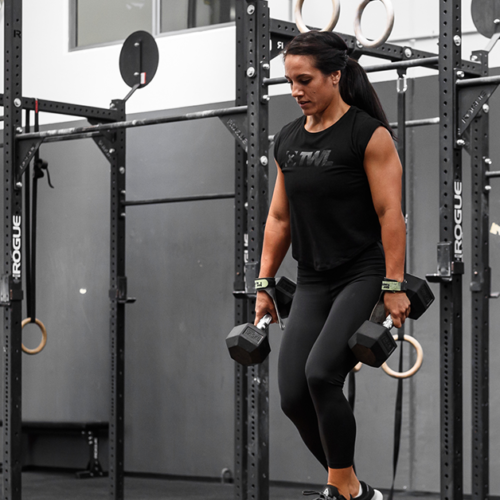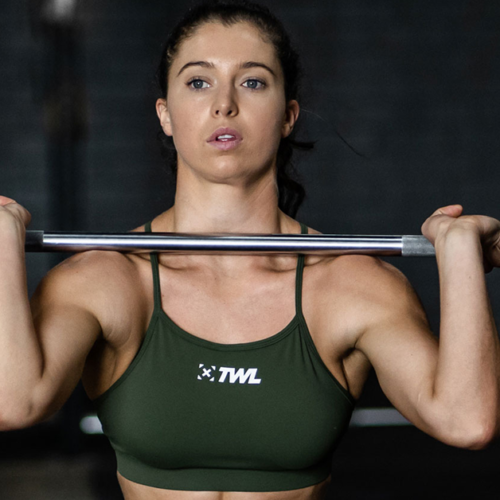The old adage says that it’s the most important meal of the day. But what does science say? How important is breakfast, really? You’ve probably thought about this a lot especially if you’re an athlete trying to make gains. Should you start your day with a full belly, is fasting longer even better, or does it not even matter?
Let’s see what the research says so far.
How Important is Breakfast? Here’s the Deal on Your First Meal of the Day
The role of breakfast is right in its name: You’re breaking your fast, which is essentially what you did when you went to sleep and didn’t eat for an extended period of time.
There are generally two schools of thought. Some people believe we stand to benefit from holding off on eating even longer (we’re looking at you, intermittent fasting folks), while others say that a healthy breakfast is crucial for kickstarting your day and getting going on the right foot.
Let’s look at both perspectives.
Team Fasting
We want to be very clear and say that more research is needed in this arena. As of now, much of these observations are purely that: observations. On that note…
According to research mentioned by the Mayo Clinic, fasting might help reduce inflammation. This means that it can help improve conditions with inflammation at their root, including Alzheimer’s disease, arthritis, asthma, and multiple sclerosis (MS).
Research published in The New England Journal of Medicine says that fasting can also contribute to a longer life, a leaner body, and a sharper, clearer mind.
Harvard Health Publishing notes that in addition, fasting can contribute to fat loss. The reason for this is that when we’re not eating, our insulin levels go down. When this happens, fat cells release stored up sugar and use it as energy. Thus, fasting could make it easier for your body to burn off some of its fat. However, it’s important to note that very often, when people lose weight while fasting, it’s simply because they’re eating less overall.
For every fan of fasting, there’s at least one person who will argue that breakfast is a must. Let’s get to those people next.
Team Breakfast
Similar to fasting, more research is required here for us to really make an informed decision. But here’s where we’re at right now.
Some research has found that people who eat breakfast gain less weight over time. After going all night without food, eating breakfast means that you replenish your body’s glucose storage. This leads to a boost in energy, better alertness, and important essential nutrients that your body needs.
Furthermore, people who eat breakfast might be drastically reducing their risk of type 2 diabetes.
Plus, let’s not forget what starts to happen when you get “hangry”: You might start feeling cranky and lethargic. Brain fog takes over. There’s a reason why you get your second wind after eating lunch, and it’s because your body really needed those nutrients.
So, what’s the verdict? How important is breakfast? Do you need that first meal right after waking up?

The Verdict on Breakfast
As of right now, here’s where we stand: Do you wake up hungry and wanting food? Then you should eat. Does the thought of eating right after you wake up make you gag? Then wait until later.
It’s that simple.
The research is incredibly inconsistent. Some studies swear that skipping breakfast will make you gain weight, while others say it’s a great approach for people who need to shed some pounds. Others are adamant that running on an empty take is essentially teaching your body to continue functioning even though it’s being deprived of nutrients.
The same conclusion can be drawn about eating breakfast. A number of both pros and cons have been found.
So really, it comes down to you and your personal preference.
There’s one thing we can say with certainty: If you’re going to eat breakfast, what you eat is really important.
You generally want to avoid refined grains and simple sugars. Yes, it’s good to minimize these foods as a rule of thumb, but it’s especially important in the morning because it can impact how your body functions for the rest of the day. Furthermore, because these types of foods tend to only satisfy you in the moment but not really fill you up, you end up wanting more food not long after.
Some of your go-to breakfasts might have more sugar than the dessert you eat at night. Choose your meal wisely!
Nutrient-dense carbs are great, and for breakfast, you especially want to get some protein and healthy fats in your body. Every cell in your body needs protein to function. Plus, it’ll keep you satiated. Healthy fats offer a number of benefits, one of which is better brain functioning and focus.
For breakfast, think of foods like eggs and egg whites, cottage cheese, avocado, yogurt (but check the label for the sugar!), and for a filling carb, oatmeal.
How important is it to eat breakfast? The answer depends on you. If you wake up starving and refuse to eat, you’re probably doing more harm than good. If you wake up with no desire to eat and force a meal down your throat anyway, how enjoyable is that? Not very.
Listen to your body and the hunger cues you’re getting. No one can tell you what you need better than your own body.
Did you like this blog? Read about nutrition myths that need to go.

















